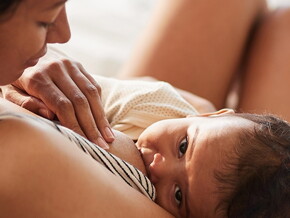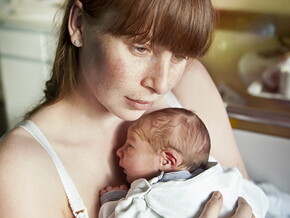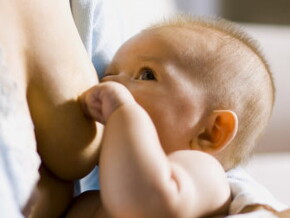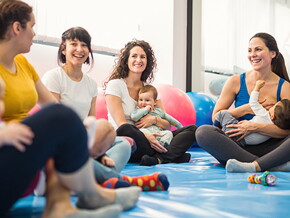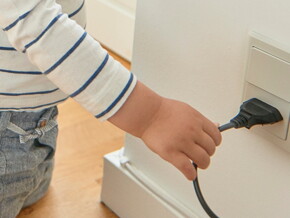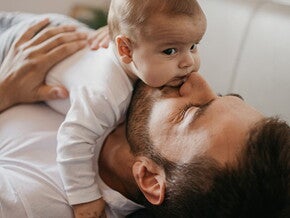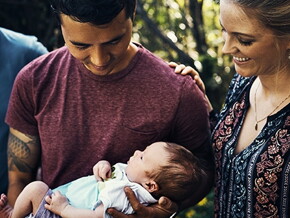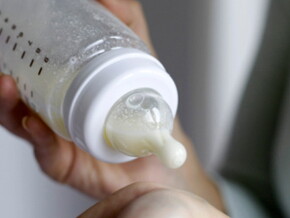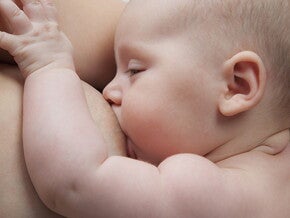
- Look into benefits
Research whether you may be eligible for any government benefits once baby arrives, and which ones. These may depend on your employment status, household income, and number and age of your children.
- Start creating a household budget
Money-management apps are great for tracking the money coming in and out of your account. A good way to budget is to follow the 50/30/20 rule—50% of your budget should go on the essentials—for example, rent or mortgage, bills, and food— 30% on other spending, and 20% on saving. If you’re coming up short after working out how much to save for a baby, review to see if there is any non-essential spending you could cut back on.
- Save for you baby
Consider opening a child savings accounts when your baby is born as you may not have to pay tax on the amount saved. A sensible approach is to set up a regular bank transfer to deposit money into the account each month. That way, it’ll be squirrelled away before you even miss it, and you’ll have peace of mind that your nest egg grows as your baby does. Whether you’re putting money aside for buying baby gear or starting a university fund, it’s worth shopping around for the best interest rates so you can save the most for your child’s future.
- Shopping for baby on a budget?
Make a list of baby essentials and try to only buy items you’ll really need. For example, a car seat, crib, stroller, diapers, a few one-pieces, vests, and a baby blanket. If you’re having a baby shower, consider setting up a gift registry to help guests understand what items would be helpful. Not sure whether you’ll need something? Ask friends and family with experience. For example, it may not be worth buying lots of breastfeeding clothes and accessories or bottle-feeding equipment until you see how your feeding plans work out. They may have other money-saving tips for parents too.
- Look for freebies
Ask friends and family for hand-me-downs - they may appreciate the excuse for a clear-out. Hand-me-downs are also eco-friendly.
- Search “find a toy library near me”
Find out if there’s a local toy library near you—for a small membership fee you could get access to hundreds of toys, games and books for your little one. You’ll save money and they’ll gain endless hours of fun.
- Buy second-hand baby essentials
Check out local Facebook groups and second-hand sites for pre-loved baby essentials. You can often find big-ticket items for sale, still in excellent condition but at a fraction of the retail cost. It’s important to note that Health Canada recommends some precaution when buying used baby items, such as: checking that used car seats has not been in a vehicle during a collision and is still within the manufacturer’s expiry date, not using cribs older than 10 years old and ensuring it is not damaged, and checking the item online to learn if there have been any recalls. Learn about buying used baby items safely and it can be a great way to save money.
- Try reusable diapers
They’re kinder on the environment and your purse. It is estimated you can save up to $2 a day (based on seven diaper changes) by using reusable cloth diapers compared with disposable diapers. That’s $600 a year! There will be some initial outlay costs, depending on what type of cloth diaper you opt for, but you should easily make these back by the second year, and certainly with a little brother or sister on the way.
- Buy in bulk
Cloth diapers aren’t for every family. Other ways to save money on diapering including looking into bulk buying or signing up to a subscription service for regular buys such as disposable diapers. Just remember your little bundle of joy won’t stay so little forever, so you’ll need to change the type and size of diaper as he grows bigger.
- Breastfeed if you can!
Not only does it provide the ideal nutritional start for babies, breastfeeding can be an economical way of feeding your baby too. Health Canada and the World Health Organization recommending exclusive breastfeeding for at least the first six months.
So that’s your finances and household budget sorted, now find out how you can emotionally prepare for parenthood here.



